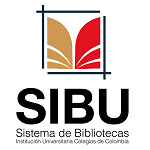Introduction to Psychology (Registro nro. 10503)
[ vista simple ]
| 000 -CABECERA | |
|---|---|
| Campo de control de longitud fija | 04237nam a22002537a 4500 |
| 003 - IDENTIFICADOR DEL NÚMERO DE CONTROL | |
| Campo de control | OSt |
| 005 - FECHA Y HORA DE LA ÚLTIMA TRANSACCIÓN | |
| Campo de control | 20250730174614.0 |
| 008 - CÓDIGOS DE INFORMACIÓN DE LONGITUD FIJA | |
| Campo de control de longitud fija | 250730b2010 xxu||||| |||| 00| 0 eng d |
| 020 ## - NÚMERO INTERNACIONAL NORMALIZADO PARA LIBROS (ISBN) | |
| Número Internacional Normalizado para Libros (ISBN) | 9781936126484 |
| 040 ## - FUENTE DE LA CATALOGACIÓN | |
| Centro catalogador de origen | Unicoc |
| Lengua de catalogación | eng |
| Centro que cataloga | Bogotá (Dr. David Ordóñez Rueda) - Campus Norte |
| Centro modificador | Bogotá (Dr. David Ordóñez Rueda) - Campus Norte |
| 082 ## - NÚMERO DE LA CLASIFICACIÓN DECIMAL DEWEY | |
| Número de clasificación | 150.1 |
| 100 ## - PUNTO DE ACCESO PRINCIPAL - NOMBRE DE PERSONA | |
| 9 (RLIN) | 12010 |
| Nombre de persona | Stangor, Charles |
| 245 ## - MENCIÓN DE TÍTULO | |
| Título | Introduction to Psychology |
| Mención de responsabilidad etc. | / Charles Stangor |
| 250 ## - MENCIÓN DE EDICIÓN | |
| Mención de edición | 1 Ed. |
| 260 ## - PUBLICATION, DISTRIBUTION, ETC. (IMPRINT) | |
| Lugar de publicación distribución etc. | Irvington : |
| Nombre del editor distribuidor etc. | Flat World Knowledge , |
| Fecha de publicación distribución etc. | 2010 |
| 300 ## - DESCRIPCIÓN FÍSICA | |
| Extensión | 479 pp |
| 505 ## - NOTA DE CONTENIDO CON FORMATO | |
| Título | Capítulo 1. Introducing Psychology : |
| -- | Psychology as a Science. -- |
| -- | The Evolution of Psychology: History, Approaches, and Questions. -- |
| -- | Capítulo 2. Psychological Science : |
| -- | Psychologists Use the Scientific Method to Guide Their Research. -- |
| -- | Psychologists Use Descriptive, Correlational, and Experimental Research Designs to Understand Behavior. -- |
| -- | You Can Be an Informed Consumer of Psychological Research. -- |
| -- | Capítulo 3. Brains, Bodies, and Behavior : |
| -- | The Neuron Is the Building Block of the Nervous System. -- |
| -- | Our Brains Control Our Thoughts, Feelings, and Behavior. -- |
| -- | Psychologists Study the Brain Using Many Different Methods. -- |
| -- | Putting It All Together: The Nervous System and the Endocrine System Psychology as a Science. -- |
| -- | Capítulo 4. Sensing and Perceiving : |
| -- | We Experience Our World Through Sensation. -- |
| -- | Seeing. -- |
| -- | Hearing. -- |
| -- | Tasting, Smelling, and Touching. -- |
| -- | Accuracy and Inaccuracy in Perception. -- |
| -- | Capítulo 5. States of Consciousness : |
| -- | Sleeping and Dreaming Revitalize Us for Action. -- |
| -- | Altering Consciousness With Psychoactive Drugs. -- |
| -- | Altering Consciousness Without Drugs. -- |
| -- | Capítulo 6. Growing and Developing : |
| -- | Conception and Prenatal Development. -- |
| -- | Infancy and Childhood: Exploring and Learning. -- |
| -- | Adolescence: Developing Independence and Identity. -- |
| -- | Early and Middle Adulthood: Building Effective Lives. -- |
| -- | Late Adulthood: Aging, Retiring, and Bereavement. -- |
| -- | Capítulo 7. Learning : |
| -- | Learning by Association: Classical Conditioning. -- |
| -- | Changing Behavior Through Reinforcement and Punishment: Operant Conditioning. -- |
| -- | Learning by Insight and Observation. -- |
| -- | Using the Principles of Learning to Understand Everyday Behavior. -- |
| -- | Capítulo 8. Remembering and Judging : |
| -- | Memories as Types and Stages. -- |
| -- | How We Remember: Cues to Improving Memory. -- |
| -- | Accuracy and Inaccuracy in Memory and Cognition. -- |
| -- | Intelligence and Language. -- |
| -- | Defining and Measuring Intelligence. -- |
| -- | The Social, Cultural, and Political Aspects of Intelligence. -- |
| -- | Communicating With Others: The Development and Use of Language. -- |
| -- | Capítulo 10. Emotions and Motivations : |
| -- | The Experience of Emotion. -- |
| -- | Stress: The Unseen Killer. -- |
| -- | Positive Emotions: The Power of Happiness. -- |
| -- | Two Fundamental Human Motivations: Eating and Mating. -- |
| -- | Capítulo 11. Personality : |
| -- | Personality and Behavior: Approaches and Measurement. -- |
| -- | The Origins of Personality. -- |
| -- | Is Personality More Nature or More Nurture? Behavioral and Molecular Genetics. -- |
| -- | Capítulo 12. Defining Psychological Disorders : |
| -- | Psychological Disorder: What Makes a Behavior “Abnormal”?. -- |
| -- | Anxiety and Dissociative Disorders: Fearing the World Around Us. -- |
| -- | Mood Disorders: Emotions as Illness. -- |
| -- | Schizophrenia: The Edge of Reality and Consciousness. -- |
| -- | Personality Disorders. -- |
| -- | Somatoform, Factitious, and Sexual Disorders. -- |
| -- | Capítulo 13. Treating Psychological Disorders : |
| -- | Reducing Disorder by Confronting It: Psychotherapy. -- |
| -- | Reducing Disorder Biologically: Drug and Brain Therapy. -- |
| -- | Reducing Disorder by Changing the Social Situation. -- |
| -- | Evaluating Treatment and Prevention: What Works?. -- |
| -- | Capítulo 14. Psychology in Our Social Lives : |
| -- | Social Cognition: Making Sense of Ourselves and Others. -- |
| -- | Interacting With Others: Helping, Hurting, and Conforming. -- |
| -- | Working With Others: The Costs and Benefits of Social Groups. |
| 526 ## - NOTA DE INFORMACIÓN SOBRE EL PROGRAMA DE ESTUDIO | |
| Institución que aplica el campo | Unicoc |
| 546 ## - NOTA DE LENGUA | |
| Nota de lengua | Inglés |
| 650 #0 - PUNTO DE ACCESO ADICIONAL DE MATERIA - TÉRMINO DE MATERIA | |
| 9 (RLIN) | 453 |
| Término de materia o nombre geográfico como elemento inicial | Psicología |
| 658 #0 - TÉRMINO DE INDIZACIÓN - OBJETIVO CURRICULAR | |
| 9 (RLIN) | 10741 |
| Programa Académico | Programa de Psicología |
| 856 ## - LOCALIZACIÓN Y ACCESO ELECTRÓNICOS | |
| Identificador Uniforme del Recurso (URI) | https://unicoceduco-my.sharepoint.com/:b:/g/personal/direccionbiblioteca_unicoc_edu_co/ESHgEVZd4h5Lt81LWX7dtKcBDnPU1QrRn1NIitrGRb8c8A |
| Texto del enlace | Acceso online exclusivo para comunidad Unicoc |
| 942 ## - ENTRADA PARA ELEMENTOS AGREGADOS (KOHA) | |
| Fuente de clasificación o esquema de ordenación en estanterías | |
| Koha [por defecto] tipo de item | Libro electrónico |
| Precio | Código de colección | Estropeado | Localización actual | Fecha del precio de reemplazo | Fecha de adquisición | Localización permanente | Código de barras | Estado de pérdida | Fecha última consulta | Fuente de adquisición | Fuente de clasificación o esquema de ordenación en estanterías | No para préstamo | Tipo de item de Koha | Signatura completa |
|---|---|---|---|---|---|---|---|---|---|---|---|---|---|---|
| 200000.00 | Coleccion Online | Bogotá (Dr. David Ordóñez Rueda) - Campus Norte | 2025-07-30 | 2025-07-30 | Bogotá (Dr. David Ordóñez Rueda) - Campus Norte | Ebook10503 | 2025-07-30 | Compra | Libro electrónico | 150.1 |
© 2014 UNICOC | Institución Universitaria Colegios de Colombia - UNICOC
Bogotá D.C. Autopista Norte Km. 20. Teléfono:(571)6683535
Cali: Calle 13 Norte No. 3N-13. Teléfono: (572)6608887





